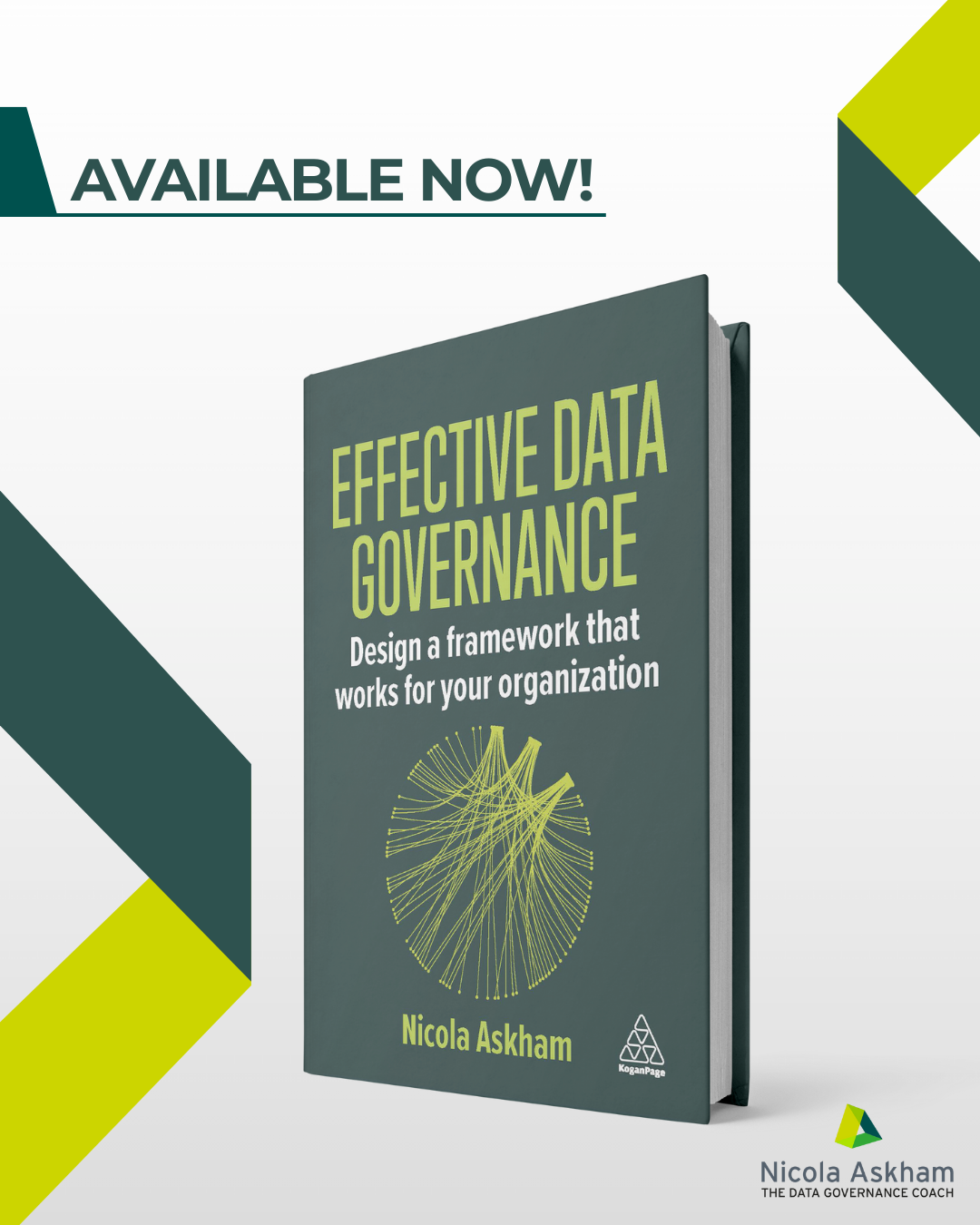Nigel has worked in data management for over 25 years. He spent much of his career at British Telecommunications (BT) where he led a series of company wide data improvement projects which brought huge benefits to BT. Also in BT, he created and ran large Information Management and Customer Relationship Management (CRM) consultancy and delivery practices. After leaving the company in 2010 Nigel has since been a data consultant with several organisations including Trillium Software and FromHereOn (aka Enterprise Architects). Currently he is Principal Information Management consultant EMEA for Global Data Strategy. He has been an active member of the Data Management Association (DAMA) for many years and is currently Vice-Chair of the DAMA UK chapter.
How long have you been working in Data Governance?
At least 20 years, probably before the term Data Governance was even coined and popularised. Although we did not have a name for it at that time, Data Governance became an issue in BT in the 1990s. When running data improvement projects it became obvious that a lack of business leadership and accountability for data was a major cause of the data quality problems we uncovered, and a significant barrier to fixing them. So we placed a big emphasis on getting business people interested and actively involved, and they eventually led the improvement projects. In practice they acted as de facto data owners and data stewards, even if we didn’t call them that at the time.
Some people view Data Governance as an unusual career choice, would you mind sharing how you got into this area of work?
Like many people, purely by accident. Until the 1990s I had a pretty bog standard IT career, progressing from a programmer to business analyst, then onto team leadership and project management. Then I ran a project to investigate and remedy outstanding software faults on BT’s biggest customer service system at that time. Its achievements were brought to the attention of a BT board member, the Director of Strategy. She met me and said ‘I want you to lead some work I have started on how we can improve our overall management of data’. Saying no was not a good career option, so that’s how I got into data as a focus in its own right. From there, data quality and data governance eventually became an abiding interest and passion.
What characteristics do you have that make you successful at Data Governance and why?
I suppose it’s for others to judge my success (or otherwise) but I feel I’ve been helped by a couple of things. First, I am not, and never have been, a technology geek, despite my many years in IT. So my natural instinct is to start any data challenge not with technology, but by a focus on business and its people. Nowhere is this more important than Data Governance where 80% of success depends on getting people to think differently about data, and in creating a direct link between Data Governance and what the business is trying to achieve. Technology has an important part to play in delivering Data Governance, but is always an enabler, never a starting point.
Second, a sense of humour definitely helps. All of us who have tried to sell the benefits of Data Governance have at some point been met with scepticism, indifference, incomprehension or downright hostility. The ability to try to overcome this with a smile and a lighthearted quip, coupled with an underlying determination to win people over, has definitely helped. It doesn’t always work, but it often can.
Are there any particular books or resources that you would recommend as useful support for those starting out in Data Governance?
I always found inspiration in the early pioneers of data quality and Data Governance, Tom Redman and Larry English. Between them they have published several books and are the founding fathers of the discipline. It’s also worth looking at the Data Management Association (DAMA) Body of Knowledge (DMBOK) which has a useful section on Data Governance. Moreover in DAMA UK we are running a very successful mentoring scheme, where grizzled Data Governance people (such as myself) help and advise less experienced people. This is proving to be a great success.
What is the biggest challenge you have ever faced in a Data Governance implementation?
It has to be my time in BT. When I started, as is the case today, BT was a large and very complex global organisation with vast volumes and varieties of data, held on multiple platforms and systems. When embarking on the Data Governance journey the hardest part was not working out what the finishing line would look like, but where to start. So I spent the first few months in my role trying to work out the first steps. Eventually I connected with some enthusiastic business and IT people in BT’s Wholesale division, and helped them launch some pilot data improvement projects. They were a great success, with large business benefits, and it was a lot easier from there. The primary lesson? In Data Governance it’s important to show real returns early to secure and sustain support, so find a known data problem area, and start tackling real problems.
Is there a company or industry you would particularly like to help implement Data Governance for and why?
This is a tricky one. Since leaving BT I have talked and worked with over 150 organisations on their data and Data Governance challenges. They include both the public and private sectors, pretty much every industry vertical (including Retail, Energy, Utilities, Transport, Banking, Professional Services and so on), and span across many countries.
What’s struck me is that whereas all appear very different and have widely varying drivers and business models, the challenges they face are remarkably similar. With Governance, they consistently centre on getting senior executive support and buy in, building the business case, winning business and IT hearts and minds, creating realistic & deliverable action roadmaps, and proving the projected benefits. So, to answer the question, I’d like to help all of them!
What single piece of advice would you give someone just starting out in Data Governance?
In Data Governance, influencing skills are critical. In many organisations, managing data inefficiently is business as usual. And it’s been done that way for so long, it often feels like you are trying to move the moon with a drinking straw. So plan your strategy for how to kick start the cultural and behavioral change needed. Identify the early key stakeholders and get to understand their business and what drives them. Use this to prepare your influencing strategies before you engage with them, and relate Data Governance directly to their concerns and aspirations.
One final piece of advice. When you are dealing with busy people with many urgent and often competing priorities, don’t ask too much of them, especially in your early encounters. Ease them in to the Governance world through simple and incremental steps. You’ll frighten them off if you ask for the world.
Finally I wondered if you could share a memorable data governance experience (either humorous or challenging)?
One that always sticks in my mind is an early workshop I ran with some business people in BT. To prove the need for Governance we profiled their key data sources and produced lots of hard evidence of data issues and problems. Most attendees found the results surprising, and sometimes shocking, and so were quickly receptive to listen to our proposal for improving its quality and management. But one attendee was adamant that ‘our tool must be wrong’ and refused to accept the findings. He stormed out and told us ‘he would prove it’. Thirty minutes later he came back to the workshop, sat down and sheepishly told us that our results were indeed accurate; he’d checked the source system! He quickly learned that the real state of data is often at odds with people’s perceptions. From that point, he became an enthusiastic proponent of Data Governance.
Nothing counters negativity like facts. As the former UK Prime Minister Benjamin Disraeli once said, ‘To be conscious that you are ignorant of the facts is a great step to knowledge’. In Data Governance, as in life, this is invariably true.
Having read my interview with Nigel you can also read my free report which reveals why companies struggle to successfully implement data governance.
Discover how to quickly get you data governance initiative on track by downloading this free report














